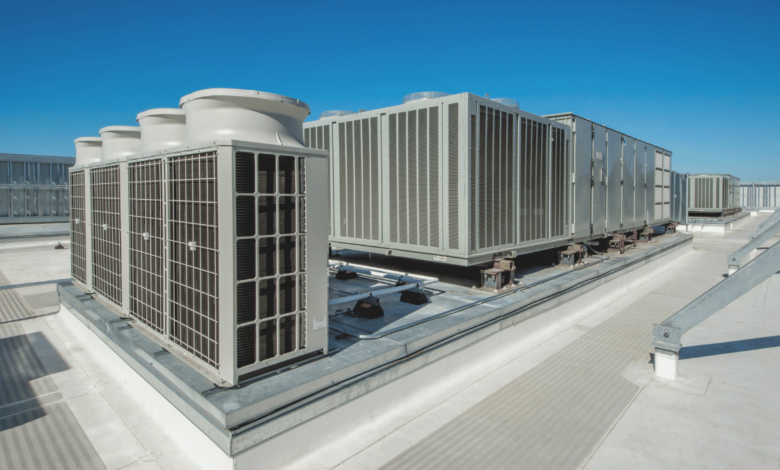
HVAC estimators play a crucial role in the heating, ventilation, and air conditioning industry. They are responsible for assessing the costs associated with installing, maintaining, and repairing HVAC systems. This role involves analyzing blueprints, calculating material and labor costs, and preparing detailed estimates for clients. Their work ensures that projects are completed within budget and meet all technical requirements.
Their expertise helps in providing accurate financial projections for both residential and commercial projects. HVAC estimators work closely with engineers, contractors, and clients to ensure that all aspects of the HVAC system are covered in the estimate. Their role is essential for successful project planning and execution.
Overview of HVAC Estimating
HVAC estimating involves evaluating the costs associated with HVAC system installation and maintenance. This includes analyzing blueprints, measuring spaces, and determining the required equipment and materials. HVAC estimating services, like those provided by professionals, help in creating precise cost estimates for projects.
Estimators use their knowledge of HVAC systems to predict the total cost, including labor, materials, and overhead. They must stay updated with industry standards and technological advancements to provide accurate estimates. This role is critical for budgeting and ensuring that projects remain financially viable.
Key Responsibilities of an HVAC Estimator
An HVAC estimator’s primary responsibilities include reviewing project plans and specifications. They measure spaces and determine the type and quantity of equipment needed. They also calculate labor costs, materials, and other expenses to provide a comprehensive estimate.
Estimators must ensure that all estimates are accurate and comply with industry regulations. They often prepare detailed reports and present their findings to clients and project managers. Their work helps in budgeting and planning, ensuring that projects are completed on time and within budget.
Essential Skills and Qualifications
To be successful, HVAC estimators need strong analytical skills. They must be able to interpret blueprints and technical documents accurately. Proficiency in estimation software and tools is also essential.
Good communication skills are crucial for explaining estimates to clients and working with contractors. A background in HVAC systems, along with relevant certifications or a degree in mechanical engineering or a related field, is often required. Continuous learning is important to stay updated with industry changes and advancements.
Understanding HVAC Systems and Components
HVAC systems consist of various components, including heating units, ventilation systems, and air conditioning units. Understanding these components is vital for accurate estimation. Estimators need to know how each part works and interacts with others.
Knowledge of different types of HVAC systems, such as split systems, ductless systems, and central air systems, is essential. This expertise helps in determining the right equipment and materials needed for each project. A thorough understanding ensures that estimates are precise and comprehensive.
The Estimation Process: From Start to Finish
The estimation process begins with reviewing project plans and specifications. Estimators measure the space and identify the required HVAC components. They then calculate costs for equipment, materials, and labor.
Once the calculations are complete, estimators prepare a detailed report outlining the total cost. This report includes a breakdown of all expenses and justifications for the estimates. The final estimate is presented to the client or project manager for approval.
Tools and Software Used by HVAC Estimators
HVAC estimators use various tools and software to create accurate estimates. Software programs help in calculating costs, managing data, and generating reports. Popular estimation software includes programs like Bluebeam and HVAC-specific tools.
In addition to software, estimators use measurement tools and calculators. These tools help in assessing the size and scope of the project. The use of advanced technology improves accuracy and efficiency in the estimation process.
Importance of Accurate HVAC Estimates
Accurate HVAC estimates are crucial for budgeting and project planning. They ensure that all costs are accounted for, reducing the risk of budget overruns. Accurate estimates help in setting realistic financial expectations for clients.
Moreover, precise estimates contribute to the overall success of the project. They allow for better resource allocation and scheduling. Ensuring accuracy in estimates helps in maintaining client satisfaction and achieving project goals.
Common Challenges Faced by HVAC Estimators
HVAC estimators face several challenges, including dealing with incomplete or unclear project plans. They may also encounter difficulties in accurately predicting material costs and labor expenses.
Unexpected changes in project scope or design can also affect estimates. Estimators need to be adaptable and able to quickly revise estimates as needed. Effective communication and problem-solving skills are essential to address these challenges.
Working with Clients and Contractors
HVAC estimators often work closely with clients and contractors to ensure project success. They need to communicate effectively to understand client needs and project requirements. Coordinating with contractors is also crucial for verifying estimates and ensuring that all aspects of the HVAC system are covered. Building strong relationships with both clients and contractors helps in achieving successful project outcomes.
Career Path and Opportunities in HVAC Estimating
A career in HVAC estimating can lead to various opportunities for growth. Experienced estimators may advance to senior roles or management positions within their organizations. There are also opportunities to specialize in specific types of HVAC systems or projects. Continuous professional development and gaining additional certifications can enhance career prospects. The demand for skilled estimators is expected to grow, providing ample opportunities for advancement.
Conclusion
HVAC estimators play a vital role in the planning and execution of HVAC projects. Their ability to provide accurate estimates is crucial for budgeting and project success. Understanding their responsibilities, required skills, and the estimation process is essential for anyone considering a career in this field.
With advancements in technology and evolving industry standards, the role of an HVAC estimator continues to be important. Accurate estimating ensures that projects are completed efficiently and within budget, contributing to overall project success.



